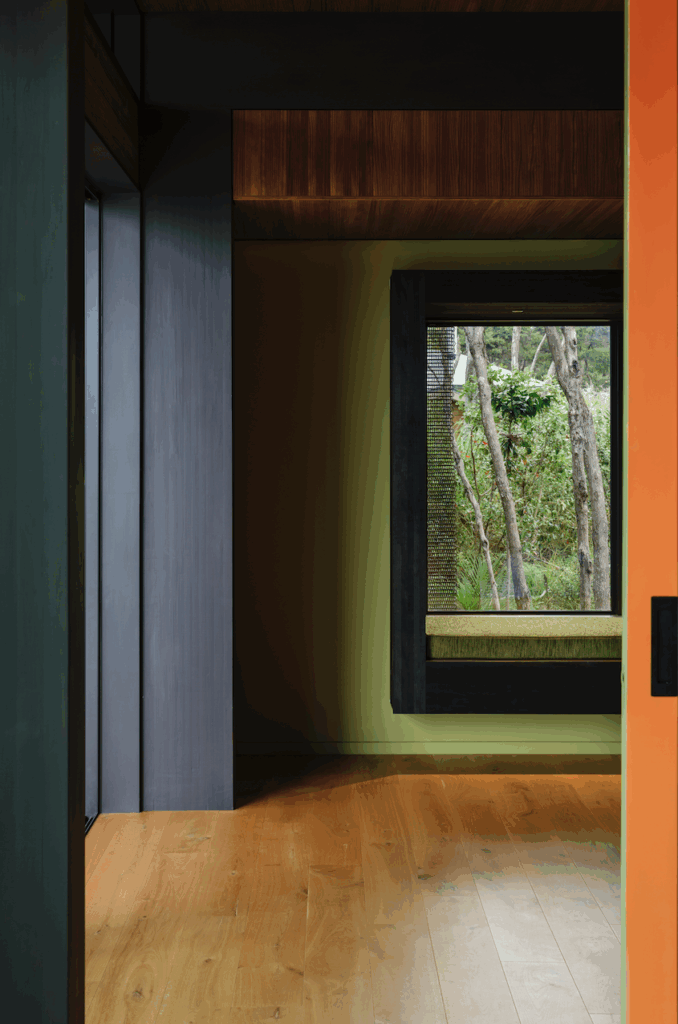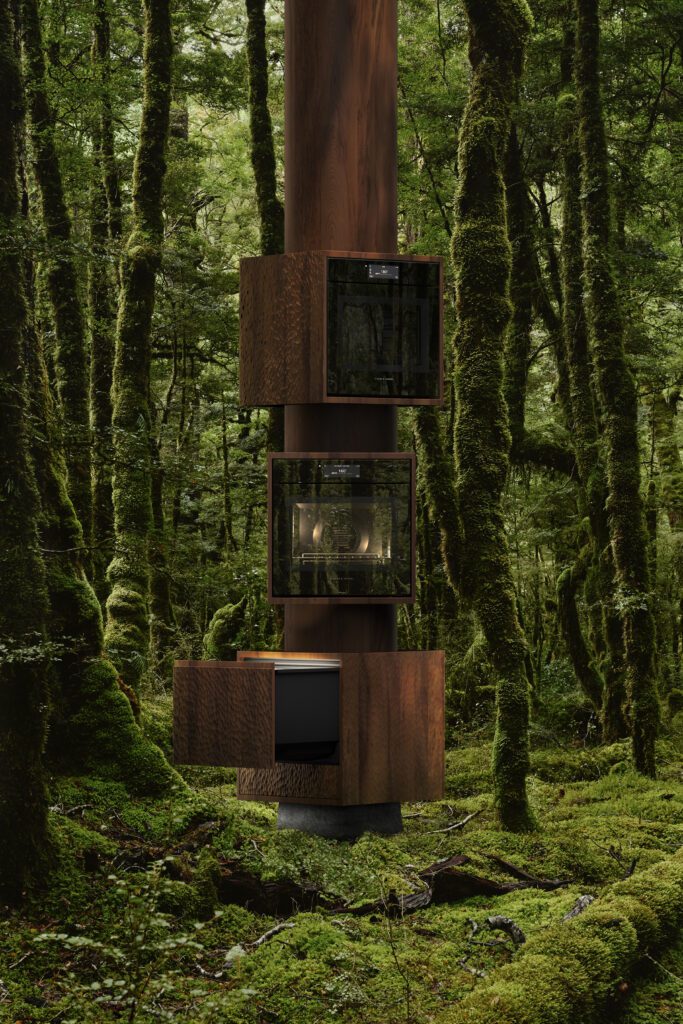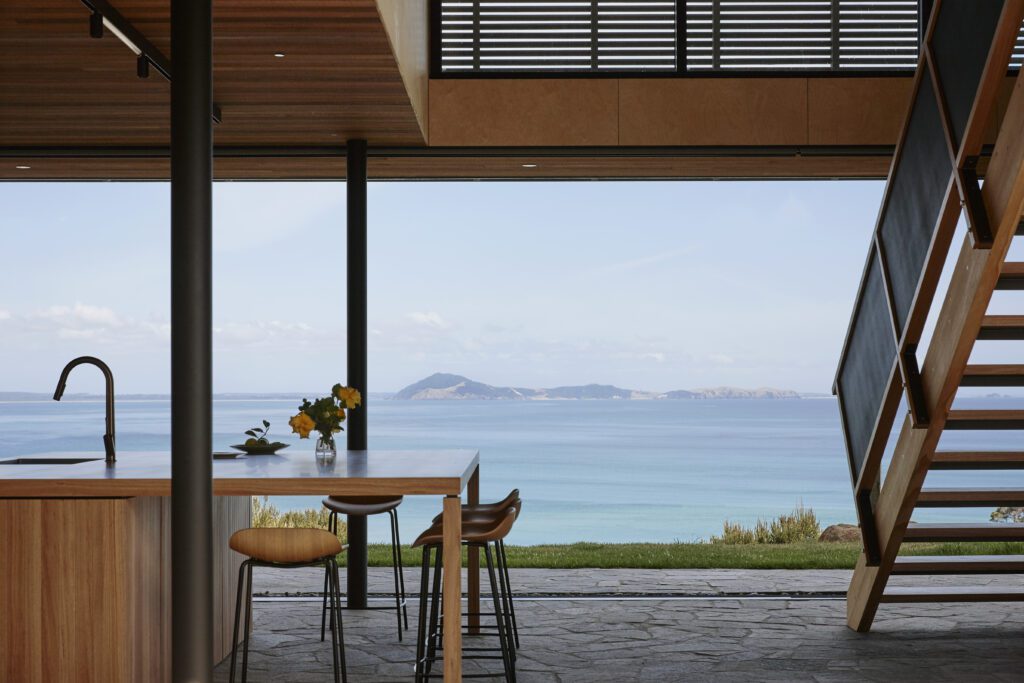Ahead of the release of their latest collectables, Countdown asked two architectural firms to sit down and think about what a supermarket meant to them, what it could be, and how, in a more sustainable future, architects could use supermarkets to educate, inspire and give back to the community.
Countdown recently released their latest collectables; a range of ‘bricks’ made from 80 per cent recycled plastic, including from swimming goggles, suitcase handles and the hard-to-reuse plastic from the interior of fridges.
Crosson Architects and Peddlethorp were asked to use the bricks to design the supermarket of the future. Both took on the challenge.
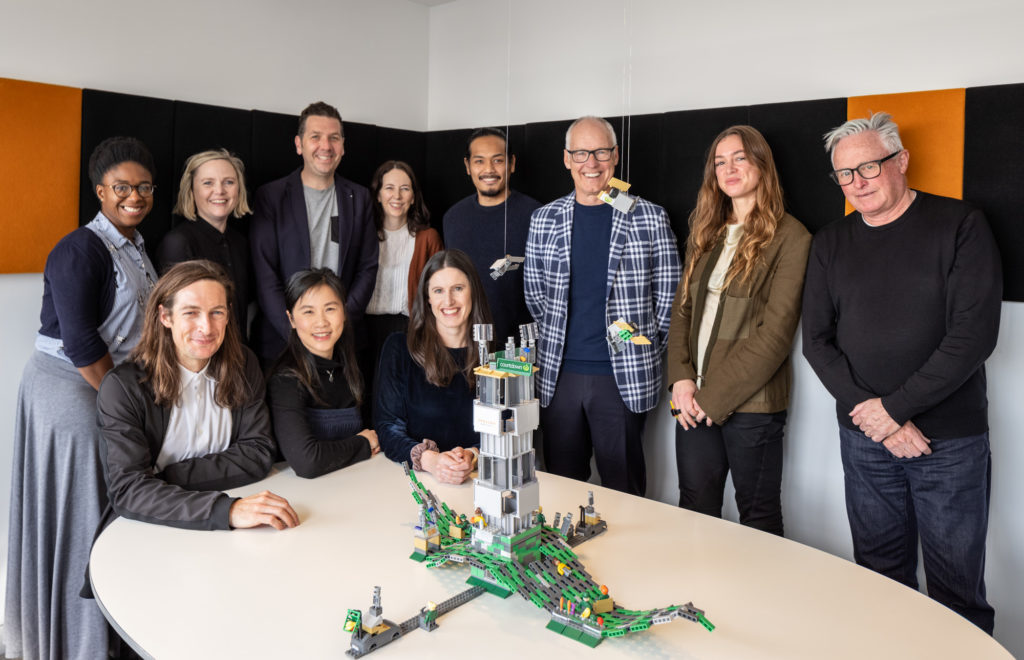
Crosson Architects took their design — as they often do when given a new project — to the boardroom. “No idea’s a bad idea,” architect Sam Caradus said. “Collectively, we adopted a position right from the get-go to do it in a way that hadn’t been considered before”. Ideas of embracing technology and sustainable practices were shared. “We decided to consider it in a radical way.”
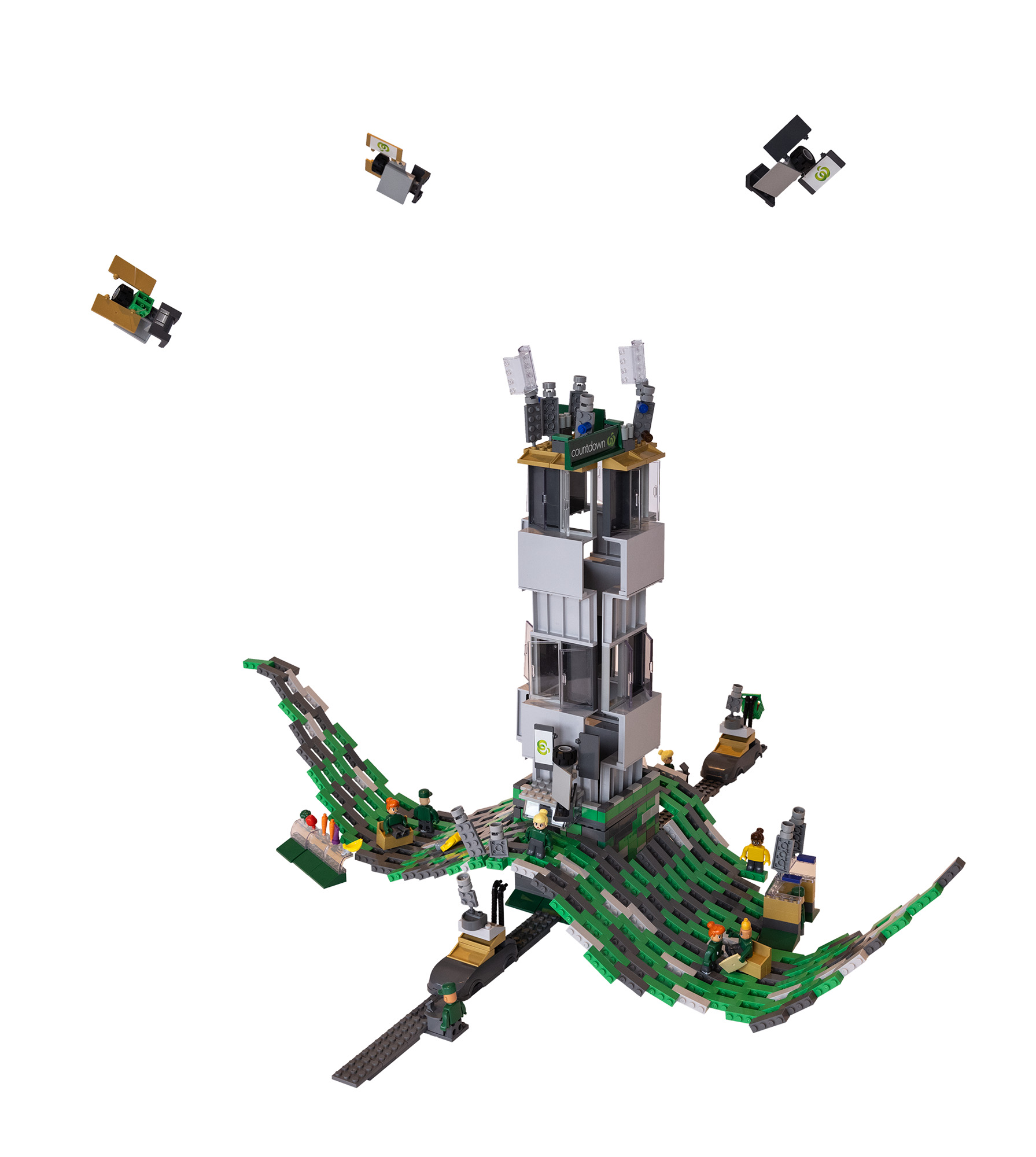
They presented a proposition that uses height rather than width and gives the mass of traditional parking space back to the community as a landscape. “We started with this node in the landscape, which would draw people in through activities and exercises, and our proposition of the supermarket became more enriched.”
The tower-like structure is reminiscent of the cityscape of The Jetsons, sitting idly in space and fitted with solar panels. Aspects of regular supermarkets, such as food-transport and delivery systems, have been replaced with drones and electric vehicles.
Peddlethorp shared a similar experience when considering the design and ultimately landed on an interactive learning and teaching space – “an Apple Store for produce”, Peddlethorp’s Cameron Pattullo explains. The interactive space, more greenhouse than warehouse, considers the importance of consumers being able to use their senses before purchasing: to smell, taste and sample while learning about the origins of the produce and even enjoying a live cooking show before a delivery – in the form of a drone delivering their order straight to their home.
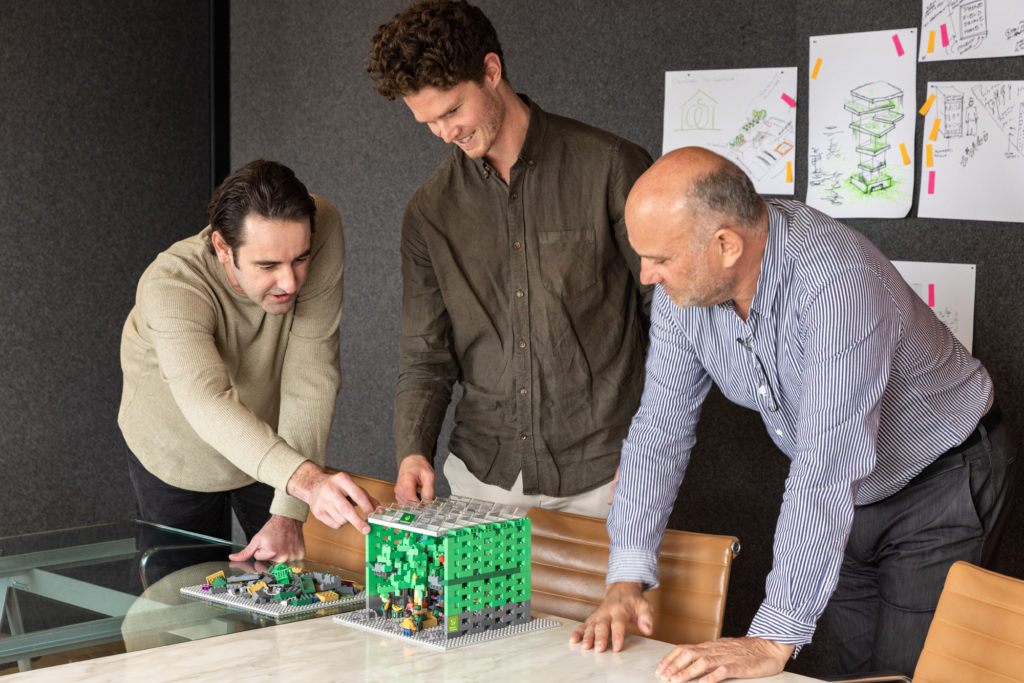
“We must treat food with respect, especially in a multicultural country like ours. I’d like to see future supermarkets act as guardians of food, valuing kaupapa and tikanga practices and using their position to teach future generations about the authenticity of what ends up on their plates, and introduce them to new ideas, tastes and smells,” Peddlethorp’s Richard Goldie says.

